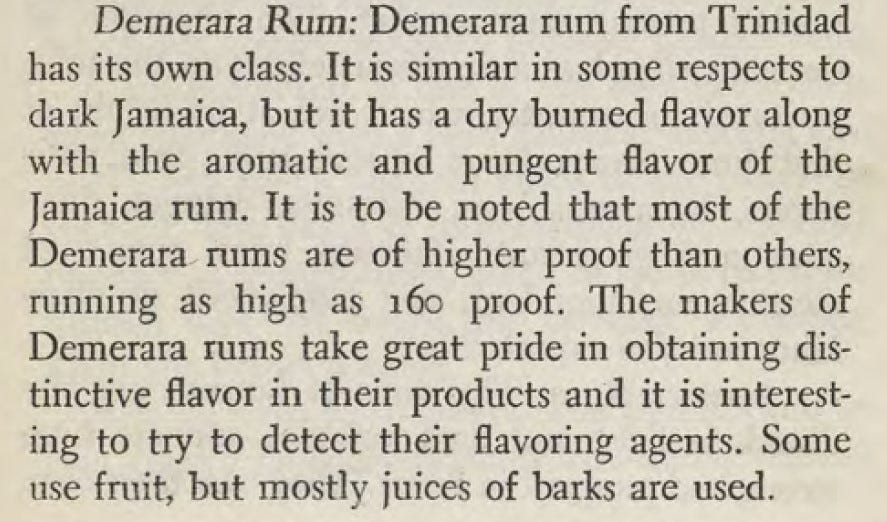When it Comes to Cocktails, Where Your Rum Came From May Not Matter
Having built a modest reputation around explaining rum styles and categories over many years, this piece’s title may have been a surprise. I’ll bet many of you arrived here to see just what the hell I’ve been smoking.
I’m a huge fan of history - both rum and Tiki in particular. I revere the work of folks like Jeff Berry and Martin Cate who tracked down old rum lists, original cocktail recipes, and sought to convey them as faithfully as possible.
That said, I constantly see well-intentioned folks on social media who are trying to dutifully follow a classic cocktail recipe and stumbling over which rum to use from region ‘X,’ where ‘X’ might be “Virgin Island,” “Martinique,” “Demerara,” or something else.
The fact is, the flavor profile of rums made in various locales has changed DRAMATICALLY over the last 90 years since Tiki sprang forth in 1934.
We know from Vic’s writing (as well as others) that Martinique rum exported in the 1940s/1950s was molasses-based and closer to Jamaican rum than rhum agricole.
We also know from historical documents that the “St. Croix” rum of the 1930s dramatically differed from the island’s rums after World War II. (Someday, I will write more on this.)
And the “Demerara rums” of yore were consistently described as heavy with strong burnt caramel notes. While some of today’s Demera rums are like this, many Guyana-made rums don’t have that burnt caramel note. Case in point: El Dorado 3 is a Demerara rum, but very unlike, say... Lemon Hart.
As for Jamaican rum, well... Smith & Cross, Rum Bar Overproof, and Appleton 12 are all “Jamaican rum,” yet wildly different in flavor profile. Sure, you can use Rum Bar Overproof, but unaged Jamaican overproof rums (as we know them today) didn’t exist until the late 1950s and weren’t exported from Jamaica until much later. So, if you’re seeking authenticity to the original recipe... it’s something to consider.
My point is simple: If you seek to recreate a recipe “authentically,” don’t get hung up on where the rum comes from. Rather, try to understand what style of rum the recipe’s creator intended to use.
Yes, it’s harder to gauge intent than blindly matching “country X” in a recipe to “country X” on a label, but one of the joys of Tiki is learning and understanding why a particular ingredient is called for.
On a final note, I completely agree that people should drink whatever they enjoy and take full advantage of the huge spectrum of ingredients now available to cocktail enthusiasts. Just don’t get too hung up on the exact wording of an old recipe.







100% agreed! The other thing that irks me is people telling you never to use such and such brand because god forbid we shall not say such or such word or heaven forbid if there is sugar added in the rum i any way shape or form! And they.... then proceed to make a tiki cocktail with loads of rich Demarara syrup :D